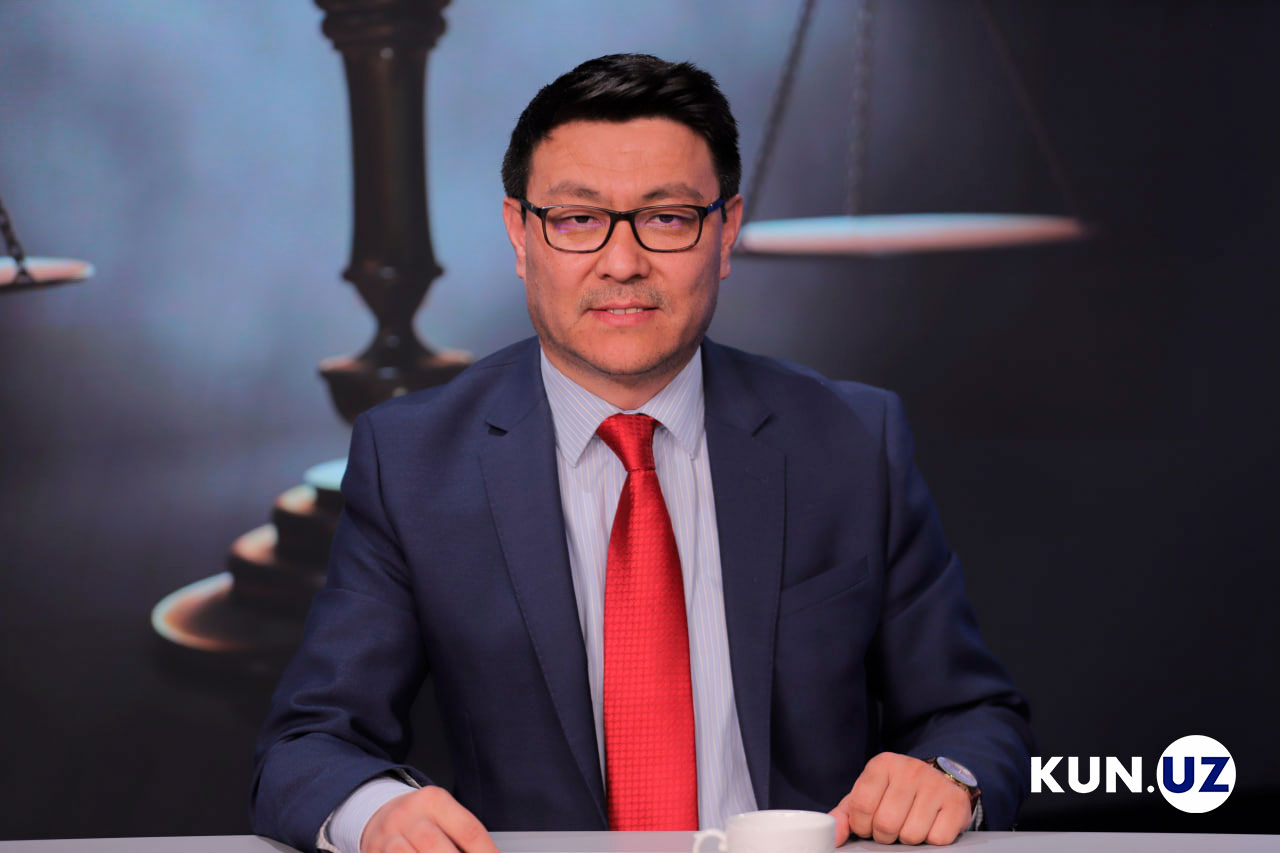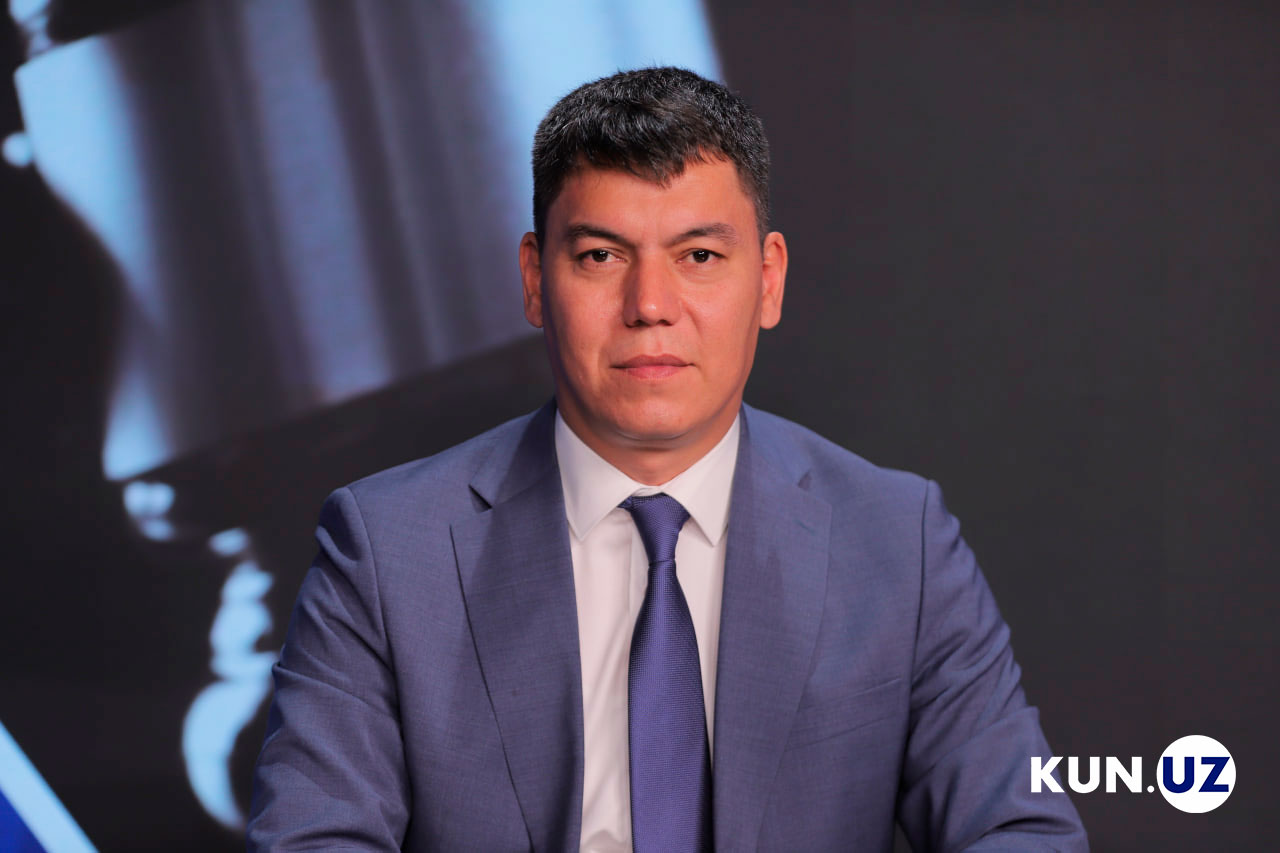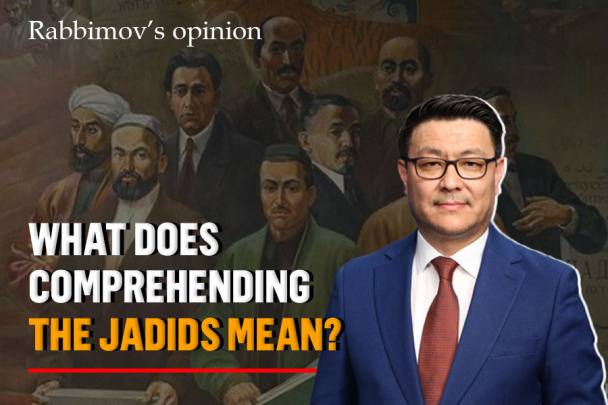“The law must be changed” – Activists discuss the cases of imprisoned young men for listening or sharing a religious song
Yesterday, May 8, 21-year-old Jakhongir Ulugmurodov, a 2nd-year student of Tashkent State University of Economics, was imprisoned for 3 years. In 2022, he sent a YouTube link of a religious song – nasheed, to a Telegram group of classmates.
According to the conclusion of the Religious Affairs Committee, the nasheed was found to be “infused with ideas of fanaticism”.
In general, this is not the first Uzbek man to be imprisoned for finding a religious song on his phone or sending it to someone. Recently, the number of people imprisoned for the same reason has been increasing.
Kun.uz correspondent conducted an interview with public activists on the topic of people who are imprisoned for keeping a video on their phone or sharing it with someone, the articles of the Criminal Code that cause this, gaps in it, and the public’s objections in this regard.
The interviewees were lawyer Razzok Altiyev, chairman of “Ezgulik” human rights society Abdurakhmon Tashanov and political scientist, sociologist Kamoliddin Rabbimov.

- According to the written scientific rule, nasheed means a piece of music in a certain direction and with a musical instrument in the Islamic religion.
So, what is nasheed in legislation? Which nasheed is dangerous for the society, state, system and which one is the opposite? What are the limits of detection? Why is the number of people imprisoned on such charges increasing sharply in Uzbekistan recently?

Razzok Altiyev:
- “Nasheed” means song, anthem in Arabic. In recent times, there is a concept that nasheed is forbidden in society. In fact, there is no such term in our laws. It is prohibited to illegally prepare, distribute, and import materials of religious content based on dogmatic and separatist ideas. This issue itself is an urgent issue.
Possession of material with prohibited content for the purpose of distribution shall be held liable. For example, if one doesn’t know Arabic, he just likes that song, and there are cases where he shares it with someone.
Abdurakhmon Tashanov:
- During the first administration, the moral and legal image of the government was connected with religious extremism. Unfortunately, we are still at the dangerous stage of this trend. Last year, the “Ezgulik” human rights society received information about the arrest of schoolchildren in the Uchtepa district of Tashkent on charges of extremism. Yes, their punishment was later commuted to a lighter one, but the trend continued to include long-term imprisonment of 19-20-year-olds. Last year, a 19-year-old man was sentenced to 12 years and 3 months. This situation is constantly growing. As I said, we are at the beginning of the trend during the Karimov era. The government should think about it. This is one side of the matter. Legislative analysis and amendments are still to be considered. Not three or four activists, big political institutions should work with this.

Kamoliddin Rabbimov:
- Islam is a 14-century value for us. Islam is at the core of society’s thinking, worldview and self-awareness. Secondly, today is the era of globalized information. There is so much information flowing in today’s social networks that people do not have time to see and understand them. Today’s problem is not information deficit, but information awareness. Thirdly, with the change of power in our country, the legal consciousness and thinking of the systems that use force have not changed.
Nasheed is a song of Islamic content, in which various things are sung. If there is a prohibited content, its level of danger must be determined: the danger to the state, the constitutional system must be analyzed. All over the world, in such a situation, lawyers determine whether the material harms others, threatens the constitutional right. World jurisprudence does not use the term extremism, because it is very difficult to define. Terrorism, radicalism can be clearly seen, felt, but extremism is not. When the accusation of extremism is made, it means “I think the mood in your brain is changing, it is getting worse”. It’s really funny to be imprisoned easily because of listening to nasheed. There is no monitoring whether the person who heard it understands it, whether his actions change for the worse, whether he does something wrong. Persons are simply being imprisoned as it happened in the old system. This is a big blow to the legitimacy of the authorities.
- Today is the time when the Internet is developed. Networks are open. People can listen to some kind of music or song they like from the Internet and send it to someone they know. We do not always inquire about its meaning. It may be a song in a foreign language, not everyone knows a foreign language. In this sense, you and I are all potential criminals in society.
So, before punishing and imprisoning people for the dangerous materials inside them, shouldn’t the state educate citizens about those prohibited materials?
Isn’t the state today only following the path of punishment without adequately protecting people’s knowledge, outlook, and understanding? That is, the goal here is to protect people from wrong, dangerous information, or just imprisonment?

Razzok Altiyev:
- The state can bring responsibility only on the basis of strictly defined rules. A citizen has the right to perform actions that are not defined as a specific obligation or prohibition. If he hears something he doesn’t understand, if he doesn’t know that language, there should be no responsibility in this case. Even in the current law, it is written that irreconcilable misunderstandings should be resolved in favor of the individual, the citizen. It was included in the Constitution. No one will be aware of what is in the person’s mind, it will show the purpose of his actions. Therefore, the crime causes responsibility only if it is done in action.
If we find such material from someone, that material will be handed over to the expert on religion. If it is known that it is prohibited, he will be held responsible, that’s it. In such a case, there are factors such as the language of the text and whether the accused understood it or not.
There are also types of responsibility. Possession of any prohibited material will result in light liability. If you spread it over the internet, it will get worse. For example, sharing between two people via Telegram will still be charged with internet distribution. There may also be cases of simple accidental sending. Whether it is purposeful or not – these are not studied. In some cases, the material does not contain any threats or talk about statehood. There is another situation: they prohibit listening to the lectures of a certain person. But at the same time, there may not be anything prohibited in that person’s distributed or stored speech. But still he is found guilty. From the point of view of legislation, we cannot completely ban a person. That person should be responsible only for his radical idea, not for his other words. In our country, lectures in which simple good things are said are evaluated in the same way as those radical lectures. It is necessary to prove the danger of the said words in the legislation. Each material should be analyzed individually, not a complete ban on one person.
The charge of possession with intent to distribute is also controversial. How does one know whether the stored material is being stored for distribution or not? If you have multiple copies of a piece of material, it’s for distribution, true. But if there is one, you can’t realize it. There are problems with the loophole in the legislation and the incompetence of law enforcement officials. There are also eligibility criteria. But in recent times, there have been cases of deviation from the criteria of the procedure for including responsibility in the Criminal and Administrative Responsibility Codes. There are cases of criminal prosecution or prosecution with increased social risk, where alternative regulation is possible. And this is causing problems.

Abdurakhmon Tashanov:
- These issues should have been considered when formulating the policy to combat extremism. Deputies in the parliament should have thought about these things. There should have been such debates before passing the law. The system of combating extremism includes the prosecutor’s office, experts, and courts. But who are the experts? What is their job? I have yet to meet any such expert. Here they all work in the same way as a machine. If there was a difference in their work, experts would interfere with the work of law enforcement officers in a good way, they would restrain and control each other. So, this policy has been formed. This policy needs to be changed. A stain like in Karimov’s time should not be left.
These situations will cause fear in people, phobias will arise. Islamophobia will be formed among employees of anti-extremism agencies. It will cause great contradictions. Laws should be improved. If we claim democracy, we should think about these issues now. People will suffer, but time will pass and consequently, the government that created the thing that will bear suffer damage.
Kamoliddin Rabbimov:
- In this case, the most important institution is the institution of judicial power. They must have humanism. First, does the person spreading that nasheed understand this? Second, if it is distributed, is it targeted or not? These are the questions that should be asked. Now the systems of force and the judiciary are machines that grind people to shreds. There is no thinking about human destiny.
Abdurakhmon Tashanov said that experts are unknown. The state expertise system should be centralized and open. We are a legal democratic country, therefore, the Committee on Religious Affairs should be an organization that provides conclusions that ensure freedom of religion and conscience of people in conflict situations. What is called a secular state is interpreted by the authorities as alienation from religion. This is not the case in the countries of the world. The duty of the state is to ensure freedom of religion and conscience. Historical factors still influence us. International legal norms work quite differently.
One can watch the full interview in the video above.
Recommended
List of streets and intersections being repaired in Tashkent published
SOCIETY | 19:12 / 16.05.2024
Uzbekistan's flag flies high on Oceania's tallest volcano
SOCIETY | 17:54 / 15.05.2024
New tariffs to be introduced in Tashkent public transport
SOCIETY | 14:55 / 05.05.2023
Onix and Tracker cars withdrawn from sale
BUSINESS | 10:20 / 05.05.2023
Latest news
-
Massive embezzlement uncovered at Andijan State University: Rector, chief accountant and other officials jailed
SOCIETY | 20:36 / 07.07.2025
-
Uzbekistan's economy expands 6.8% in first half of 2025
SOCIETY | 20:34 / 07.07.2025
-
Heatwave triggers nearly 250,000 emergency calls across Uzbekistan
SOCIETY | 20:31 / 07.07.2025
-
Why medicines cost more in Uzbekistan? Pharmaceutical Agency chief explains
SOCIETY | 18:21 / 07.07.2025
Related News

11:34 / 27.06.2025
President awards Kun.uz editor and political analyst on national press day

09:39 / 06.01.2024
“US Department of State positively assessed the state of religious freedom in Uzbekistan” – Religious Committee

13:22 / 11.12.2023
Why should we study the jadids?

20:06 / 28.07.2023



